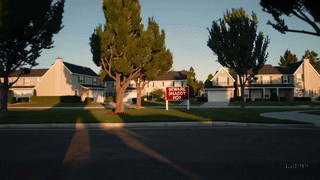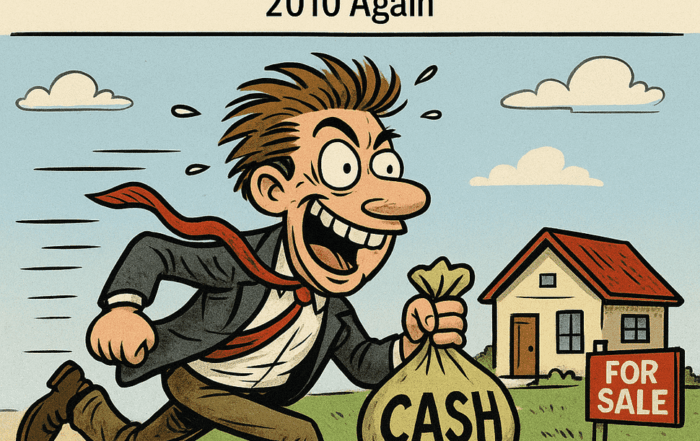
Beware of Shady HOAs: What Every Homeowner Needs to Know
Buying a home is exciting, but what if you move in and suddenly find out there’s an HOA (Homeowners Association) you didn’t know about? Or worse, what if that HOA seems to be run by someone who might not be playing fair? That’s exactly what happened to a homeowner we recently worked with—let’s call her Sarah.
Sarah bought her dream home in a quiet neighborhood. Everything seemed perfect until one day, she received a letter from what claimed to be a newly formed HOA. The letter demanded monthly fees and outlined a list of rules. Sarah had never heard about this HOA when she bought the house. Red flag!
Feeling uneasy, Sarah reached out to us for help. Here’s what we uncovered and what you should always look for when dealing with an HOA:
-
Ask for the Paper Trail:
-
Sarah requested official documents like the Articles of Incorporation, Bylaws, and Declaration of Covenants (CC&Rs). Turns out, the HOA was recently formed, but the process was questionable.
-
Any legitimate HOA should have these documents readily available. If they hesitate or refuse to provide them, that’s a major warning sign.
-
These documents outline your rights as a homeowner and the HOA’s responsibilities. They should also state how the HOA was formed and the decision-making process.
-
-
Check with the County:
-
We advised Sarah to check public property records. A legitimate HOA should be recorded with the county. If nothing is filed, you’ve got a problem.
-
Every HOA must file its governing documents with the county clerk’s office. This ensures that the HOA is properly established and homeowners are aware of its existence before purchasing property.
-
Sarah discovered that while some documents had been filed, there were inconsistencies and missing information. This raised further concerns.
-
-
Know Your Rights Under Florida Law:
-
Florida Statute Chapter 720 gives homeowners the right to request HOA records. Sarah used this to demand meeting minutes, financials, and proof of member votes. The HOA board suddenly got nervous—another red flag!
-
Florida law is clear: homeowners have the right to inspect and copy official HOA records. This includes financial documents, meeting minutes, and governing documents.
-
If an HOA refuses to provide these records within ten business days, they are in violation of state law. This could lead to fines and other legal consequences.
-
-
Get the Neighbors Involved:
-
Sarah spoke to her neighbors. None of them knew much about the HOA either. That raised even more concerns. Often, power-hungry individuals try to take advantage of unknowing homeowners.
-
We encouraged Sarah to form a small group with other concerned homeowners. Together, they drafted a collective request for information. Strength in numbers often forces HOAs to take homeowners more seriously.
-
Neighbors can also share their experiences and any documentation they may have, helping to piece together a clearer picture of what’s happening.
-
-
Hire an HOA Attorney if Needed:
-
When things didn’t add up, Sarah consulted a real estate attorney. That put pressure on the HOA to comply with the law or back off.
-
An attorney can help interpret the HOA’s governing documents and identify any legal violations. They can also assist in filing complaints with the Florida Department of Business and Professional Regulation (DBPR).
-
Legal action should be a last resort, but sometimes, it’s necessary to protect your property rights and financial well-being.
-
Part 2: Deeper Legal Review and Findings
Settlement Statement Review: There is no indication of HOA dues, prorations, or assessments in the closing documents for the property at 102 W Adalee Street. All other standard fees, including taxes, insurance, title costs, and commissions, are clearly itemized; however, HOA-related costs are absent. This omission signifies that HOA obligations were not disclosed at the time of purchase.
Title & Lien Search Review: A meticulous examination of the title policy reveals that critical endorsements related to HOA obligations were NOT included. Specifically:
-
HOA Endorsement
-
POD 5.1 Endorsement
-
Lender 401 Condo Endorsement
The absence of these endorsements strongly suggests that no active HOA was disclosed or considered as part of the title insurance protections. This raises a serious question as to the validity and enforceability of any retroactive HOA claim.
Contract Review: A review of the executed Contract for Sale and Purchase confirms that Section 19B – Homeowners’ Association (HOA) Rider was NOT selected. This section would have disclosed the existence of an HOA and established my acceptance of any related obligations. The fact that this section was left unchecked further supports my position that no such HOA obligations were presented to or agreed upon by me prior to closing.
MLS Listing Evidence: I have obtained the original MLS listing for the property, which explicitly shows that the HOA field was left blank. This omission demonstrates that neither the seller nor the listing agent disclosed the existence of an HOA at any point during the marketing or sales process.
The Result:
The so-called HOA turned out to be one homeowner trying to gain control without following proper legal procedures. Thanks to Sarah standing her ground, supported by legal knowledge and community backing, the fraudulent activity was stopped.
Key Takeaway for Homeowners:
-
Always ask for official HOA documents.
-
Check public records for legal filings.
-
Talk to neighbors for collective insight.
-
Know your rights under Florida Statute Chapter 720.
-
Don’t be afraid to seek legal help.
Your home is your biggest investment—protect it by staying informed and standing up to questionable HOA practices.
Written by CEO of Graystone & companies & Coach of the Property Profit Academy
Let me teach you how at propertyprofitacademy.com
Keep it consistent, stay patient, stay true—if I did it, so can you! Ready to learn? Let me guide you at propertyprofitacademy.com – Jorge Vazquez, CEO of Graystone Investment Group & its subsidiary companies and Coach at Property Profit Academy.
Pick your expert. Book your free 15-minute consult now. We are here to help!
Our Top Articles
How Does a Property Flipper Make a Profit in 2025?
Jorge Vazquez2025-07-11T20:16:48+00:00July 11th, 2025|Comments Off on How Does a Property Flipper Make a Profit in 2025?
How Does a Property Flipper Make a Profit in 2025? By Jorge Vazquez, CEO of Graystone Investment Group It's [...]
The College Rental That Nearly Schooled the Landlord: Lessons from Bradley’s Student Housing Fiasco
Jorge Vazquez2025-07-10T19:32:35+00:00July 10th, 2025|Comments Off on The College Rental That Nearly Schooled the Landlord: Lessons from Bradley’s Student Housing Fiasco
A "Safe Bet" Gone Sideways Bradley is one of those agent-investors we all admire. Sharp, experienced, hands-on, [...]
Opportunistic Buyers Are Back: Why Florida’s Real Estate Market Feels Like 2010 Again
Jorge Vazquez2025-07-09T01:10:13+00:00July 8th, 2025|Comments Off on Opportunistic Buyers Are Back: Why Florida’s Real Estate Market Feels Like 2010 Again
If you were around during the aftermath of the 2008 crash, you might remember that eerie silence around 2010—the [...]
Property Profit Academy:
✔ Learn to buy properties with little to no money down.
✔ Build a $10M portfolio step by step.
✔ Master strategies like BRRRR and house hacking.









